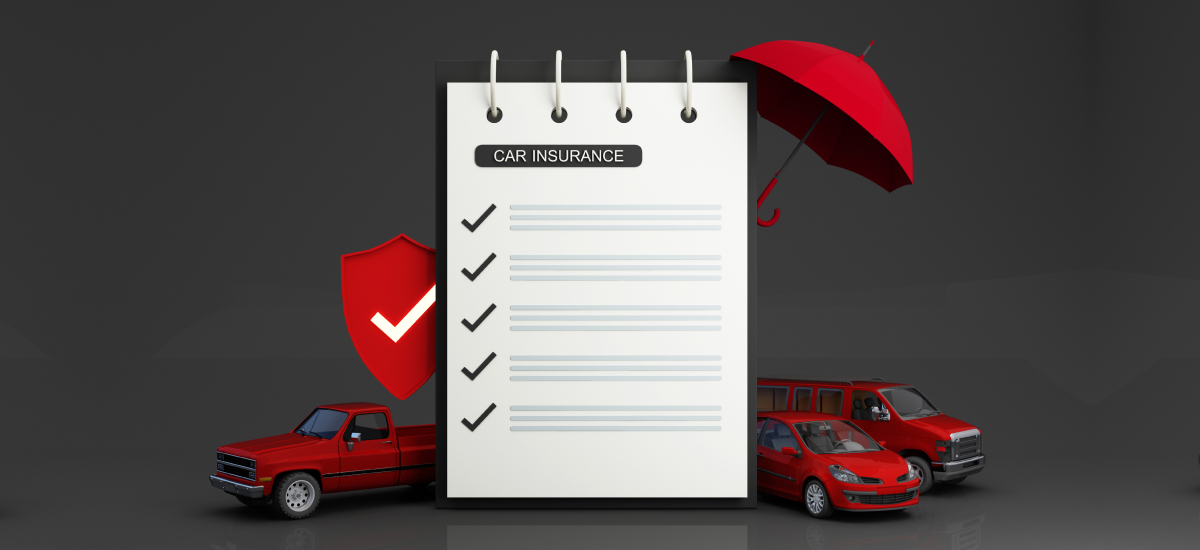As a car owner in India, it's crucial to have a clear understanding of the Insurance Regulatory and Development Authority of India (IRDAI) guidelines for car insurance policies. These guidelines ensure that insurers provide fair, transparent, and consumer-friendly coverage to vehicle owners across the country.
In this article, we will explore the key aspects of IRDAI's car insurance regulations, including mandatory third-party coverage, comprehensive policy terms, total loss criteria, customer service standards, and flexible renewal options. By familiarising yourself with these guidelines, you can make informed decisions when purchasing or renewing your car insurance policy.
Understanding car insurance
Car insurance is a contract between a vehicle owner and an insurance company, where the insurer agrees to provide financial protection against damages or losses incurred due to accidents, theft, or other covered events. In exchange for this coverage, the policyholder pays a premium to the insurance company. A car insurance policy is designed to safeguard the vehicle owner from the financial burden that may arise from unforeseen circumstances involving their car.
Types of motor insurance policies in India
Motor insurance policies in India are broadly categorised into the following types:
Third-Party Liability Coverage
Third-party liability coverage is mandatory under the Motor Vehicles Act, 1988. It protects the vehicle owner against legal liabilities arising from accidents caused by their vehicle, resulting in injuries, death, or property damage to third parties. This coverage also includes compensation for third-party property damage up to a specified limit.
Comprehensive Motor Insurance Policy
This policy offers broader protection than third-party liability insurance. It covers both third-party liabilities and damages to your own vehicle due to accidents, theft, natural disasters, and other unforeseen circumstances. Policyholders can enhance their comprehensive coverage by opting for various add-ons, such as zero depreciation cover, engine protection cover, roadside assistance, and personal accident cover for the owner-driver.
Standalone Coverage for Damages to the Insured Vehicle
This type of coverage protects only the policyholder's vehicle against damages caused by accidents, natural calamities, fire, theft, or malicious acts. It covers the cost of repairs or replacement of the damaged parts of the insured vehicle.
Guidelines for comprehensive car insurance cover
The IRDAI has laid down specific guidelines for comprehensive car insurance policies:
· As per the Motor Vehicles Act, 1988, it is compulsory for all car owners to have third-party liability insurance. IRDAI mandates that every comprehensive policy must include this basic coverage. This ensures that if the insured vehicle causes injury, death, or property damage to a third party, the insurer is legally obligated to cover the associated costs.
· If the insured vehicle is stolen, a comprehensive insurance policy, under IRDAI norms, must offer compensation to the policyholder, assuming the claim is approved and the necessary documentation (like FIR and untraceable report) is submitted. The insurer typically pays the Insured Declared Value (IDV) of the car after deducting depreciation and applicable deductibles.
· In case of accidents where the insured car is damaged, IRDAI directs that insurers must provide compensation for the cost of repairs, provided the claim is approved. This includes damage due to collisions, overturning, or accidental impact. The policyholder must, however, file the claim correctly and within the stipulated time frame, and the vehicle must not have been used in violation of policy terms.
· IRDAI guidelines also require insurers to cover damage or total loss due to unforeseen events. This includes:
o Natural disasters such as floods, earthquakes, cyclones, and landslides
o Man-made incidents like riots, vandalism, strikes, or malicious acts
o Fire-related damage, including explosion or self-ignition
These perils must be explicitly included in the comprehensive policy under the standard terms and conditions.
General exclusions of a car insurance policy
Car insurance policies typically exclude coverage for certain situations, such as:
· Damage due to illegal activities, like drunk driving
· Regular wear and tear of vehicle parts
· Mechanical or electrical failures
· Damage occurring outside Indian geographical limits
· Consequences of nuclear risks or war-like events
· Intentional damage
IRDAI new rules for car insurance
The IRDAI has introduced several new rules to enhance the car insurance experience for policyholders:
· Policyholders can now opt for standalone Own Damage (OD) cover and a 3-year Third-Party Liability cover instead of being mandated to purchase a bundled long-term policy.
· The No Claim Bonus (NCB) structure has been standardised across all insurers for easier understanding.
· In case of total loss or theft claims, the Registration Certificate (RC) of the vehicle will be cancelled, and the policyholder must submit the RC to the insurance company.
· The IRDAI has also recommended a minimum ₹25,000 insurance cover for all passengers in the insured vehicle.
IRDAI rules for car insurance renewal
The IRDAI has set forth the following guidelines for car insurance renewals:
· Policyholders have the option to choose annual, long-term, or short-term policies.
· Standalone Own Damage (OD) Policies must expire along with the third-party coverage.
· Insurers can offer standalone OD coverage only if the third-party insurance is active.
· To ensure continuous coverage, the policy must be renewed on time. If there is a gap in renewal, the insurance company is not liable to pay for any damages that occurred during the lapsed period.
· If the policyholder fails to renew the car insurance policy within 90 days post the expiry date, any applicable No Claim Bonus will be reset to zero.
Final words
Understanding the IRDAI guidelines for car insurance policies is essential for every vehicle owner in India. These regulations ensure that insurers provide comprehensive coverage, fair claim settlements, and transparent policy terms. By familiarising yourself with the types of policies, coverage options, exclusions, and renewal rules, you can make well-informed decisions while purchasing or renewing your car insurance.
Remember to compare policies from different insurers, carefully review the terms and conditions, and choose a plan that best suits your specific requirements. With the right car insurance policy in place, you can enjoy peace of mind knowing that you and your vehicle are adequately protected against unforeseen circumstances on the road. Explore Generali Central car insurance plan to find a policy that aligns with your needs and budget.
FAQs
1. What is the IRDAI claim settlement ratio for car insurance?
The IRDA claim settlement ratio for car insurance refers to the percentage of claims settled by an insurer compared to the total number of claims received during a financial year.
2. What are the documents required for car insurance in India?
The essential documents required for car insurance in India include a copy of the Registration Certificate (RC), a valid driving licence, a passport-sized photograph, and proof of address.
3. Is third-party liability coverage mandatory in India?
Yes, third-party liability coverage is mandatory for all vehicles in India under the Motor Vehicles Act, 1988.
4. Can I renew my car insurance policy online?
Yes, most insurers in India allow policyholders to renew their car insurance policies online through the company's website or mobile app.
5. What should I do if my car insurance policy lapses?
If your car insurance policy lapses, you should renew it as soon as possible to ensure continuous coverage. However, if the gap exceeds 90 days, you may lose any accumulated No Claim Bonus.




















